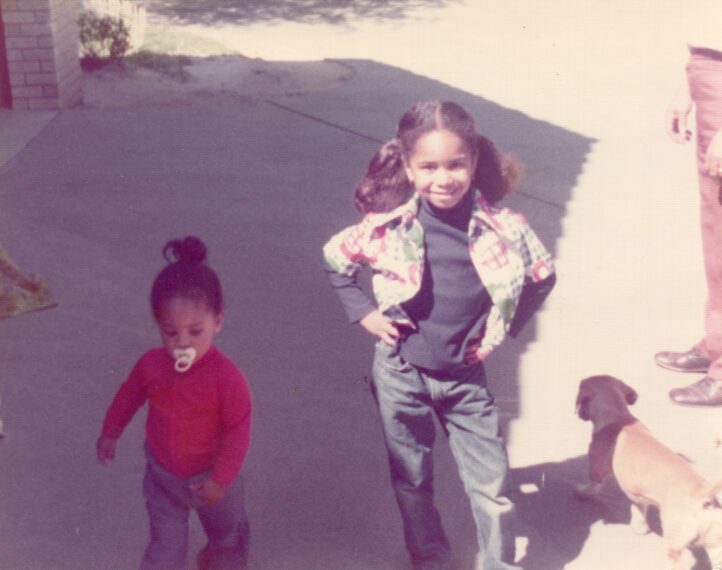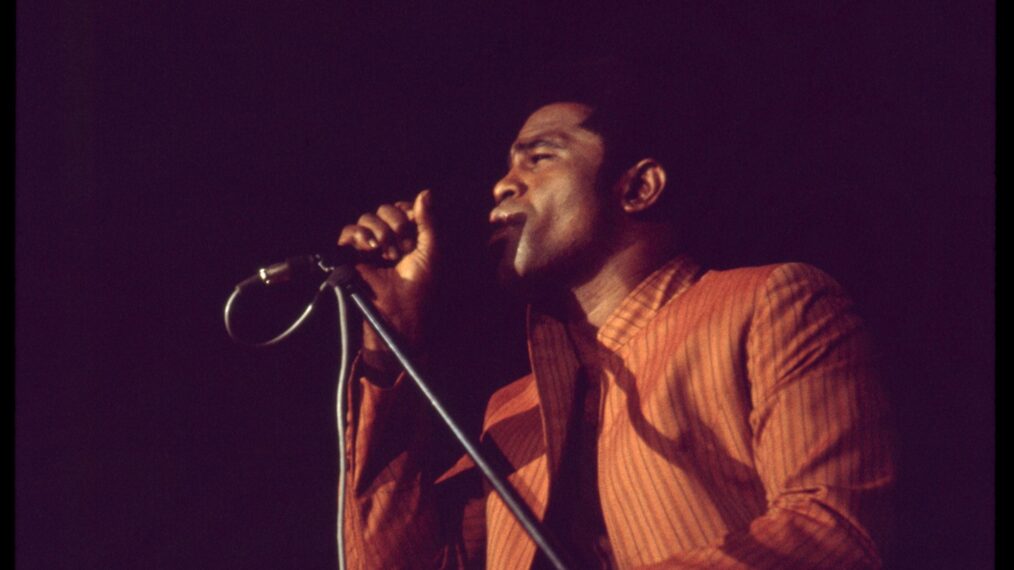The historical significance and impact of the “Godfather of Soul” are explored in James Brown: Say It Loud which airs February 19 & 20 on A&E. The four-part documentary chronicles the singer’s roots from middle school dropout and juvenile delinquent to music legend and cultural icon.
Archival footage and images along with exclusive interviews help tell the story of a multi-dimensional, often controversial figure. Among those featured in the doc are Mick Jagger, Questlove, Bootsy Collins, LL Cool J, Rev. Al Sharpton, Chuck D, Dallas Austin, Jimmy Jam, and Terry Lewis.
Brown’s kids Larry Brown, Dr. Deanna Brown Thomas, and Dr. Yamma Brown also reflect on their dad they knew beyond the bright lights and Apollo Theater and other grand stages. Here Deanna and Yamma open up about being part of the project.
What does it mean for you to see this multi-part documentary made on your dad, especially during Black History Month?
Dr. Deanna Brown Thomas: Deborah Riley Draper, the director, I’m very thankful for all the work she and her staff have put into it. Whether it’s Black History Month or not, because we celebrate Black History Month 365 days a year. We’re just happy it’s out because there is a whole new generation of people that is going to learn about the “Godfather of Soul” and all of what he has put into not only the music industry. We’re talking civil rights, him as a humanitarian, being a father as well. Then also being a husband, and businessman and coming from such humble beginnings. It’s all there.
Look Magazine Collection/Library of Congress
Do you remember when you realized how big a star your dad was?
Dr. Yamma Brown: For me, I realized how newsworthy he was when I was in high school when he went to prison. I’m thinking, “Why do people care so much? Why do they care so much?” It was such a big news around. I’m a little bit younger than my sister, so she’ll remember some things. But also I think about when I turned 21. I got to go with him on the road for about a week when I was on break from school. I got to do my 21st birthday in Paris, and I remember being in the hotel. People were downstairs camping out. The paparazzi were so different, even outside the United States. He was like, “I told you. You had to come out of the country to see because you didn’t believe me.” I believed him, but at the same time, I never saw him to that magnitude. For me, going to another country is when it hit me.
Deanna: I was a sophomore at Towson University in Maryland and in the library donig a research paper. I picked up this encyclopedia to look through B to see what was going on with James Brown. When I stopped to read, I saw the names of my brothers and sisters. That freaked me out because I was like, “Oh my goodness. You mean to tell me the world knows about us.” Of course, they knew him, but that is what did it to me. It opened my eyes to how huge he was that he is in the encyclopedia where they were talking about him and his family and everything. It just blew my mind.
You both open up about the domestic abuse that went on with your dad. How hard was it to revisit those times?
Yamma: It’s always difficult to talk about any aspect of that no matter who it is. It’s not an easy thing to talk about. In the same respect, you also want to show the totality of who that person was. He did go through things in his childhood and experienced things in his lifetime. He didn’t have it easy as well. There is a lot of grace and empathy with what he went through in his lifetime. He didn’t have it easy as well. Knowing that it was hurtful.
Some of the pain he has inflicted on different people. Not to make an excuse for it or shove it under the rug. You want to show where he was flawed. He was a flawed human being as we all are. So for me, it’s about giving grace to my dad, and myself, to understand a man like him and knowing he is not perfect. None of us are. We had to be real about that. It’s always hard to talk about something personal.
Deanna: His life was an open book. It’s not like it was a secret. Everyone knew about it, so to address it was therapeutic not only for us but for other people as well. I believe that it was important. Not everyone can do that. Some people are different. Some people can not talk about those things. God bless my mother for being the strong woman she was to withstand being his wife and raising two daughters. She is still strong because my mom is still alive today living and thriving.


Daenna and Yamma (A&E)
Is there anything that you took from the making of the documentary?
Deanna: For me, it reassured his deep tenacity, determination, his grit, and of course, made me miss him even more.
Yamma: Seeing things like this always sits right at home for me. He was dad to us. He may be other things to us. He is still the “Godfather of Soul.” We still listen to his music and jam out. Deanna worked for him. We’ve seen him in different lights like a businessman, but in reality, a lot of these things we’ve known and experienced. These things still give us more deeper understanding of who he was. It’s nice to hear others talk about him and what stories you’ve never heard from other people, but overall it reinforced what we already knew.
Is there one memory that you’ll always cherish about your dad?
Deanna: It was the Greek Theatre in Los Angeles. We were like, “Let’s go hang out with Dad for the weekend.” That’s when you know you lived a blessed life when you can we can hang out with the Godfather for the weekend as that’s daddy. He was performing that night. Before we got to the elevator I asked, “Hey daddy, can I dance with you on stage tonight on “Try Me.” He was like not tonight. That we would do it another night. Normally he would pull one of the background singers to dance. I told the lady that night, “When he looks for you, don’t move.” So I walked out instead, and he was shocked when he saw me. I had a chance to dance with my father. I won’t ever forget it for sure.
Yamma: I have so many memories of him just being at home. Going up to the farm and feeding the horses I did love going to Paris with him. We did Belgium and other places. We even had a chance to go to Six Flags with him. Yes, amusement park, so that was fun. Just being in his presence was fun.
Deanna: My favorite memory for her was when she was in that McDonald’s commercial with him. That was her moment. There are so many great moments.
Yamma: That was something else. Doing all those takes and eating all those french fries.
How important are projects like this to preserving his history? How would you describe his legacy?
Yamma: Things like this documentary and documentaries to come and many other projects in the works by the family and other people are important. His name will last til the end of time. Being able to be part of his legacy and contribute in any way we can is a blessing. I’m glad the documentary is coming out. I’m glad Deborah took the approach she did. She took it home, looking at so many aspects of his life that truly made him the man he was before he passed. Just reflecting on his life, tenacity, ups, and downs and being the resilient man he was, and being proud to be his daughter.
Deanna: It’s nice to know another generation will understand his history. People may know him through Michael Jackson and Usher through dancing. To understand this history, especially when there are people who are trying to block black history and ban books about history and who we are. It’s important to have this documentary because it births him to another generation. James Brown Academy of Musik Pupils is a year-round program where children can learn to play music. They learn from dad’s music as well as others. I’m glad to be able to do this and teach these kids to know music. Not just beats, not just computer and synthesizer but actual music and instruments. Something I think my dad would be so proud of to see is young kids learning music from his music and 30, or 40 years and still be playing James Brown.
James Brown: Say It Loud premiere, February 19 and 20, 8/7c, A&E
This story originally appeared on TV Insider

